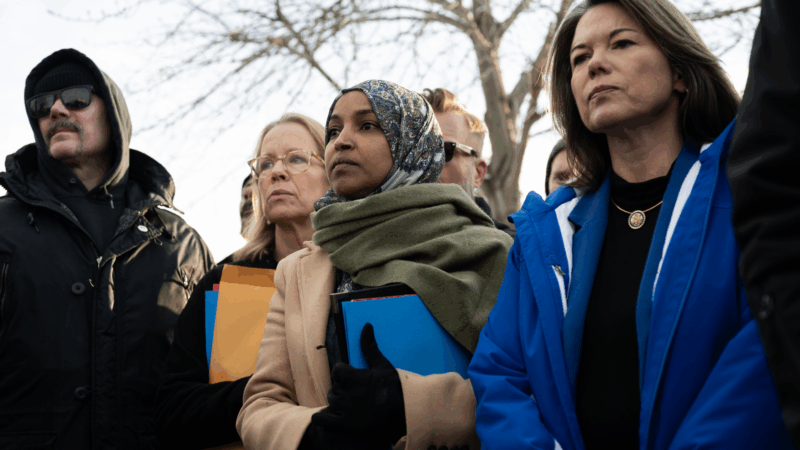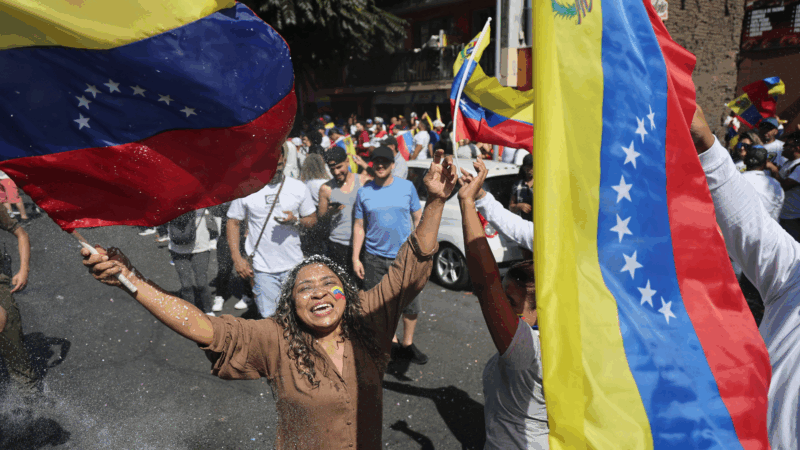Food is running out in Gaza nearly a month into Israeli blockade
DUBAI, United Arab Emirates — Food stocks in the Gaza Strip are dwindling and there are only five days of flour left to keep bakeries running as Israel’s nearly monthlong blockade threatens to plunge the territory’s 2 million people into hunger, the World Food Programme said Thursday.
Other aid groups also say their supplies are depleting at alarming rates due to Israel’s blockade, raising fears that deaths from malnutrition and starvation could return to Gaza after a two-month-long ceasefire had brought much needed relief and thousands of trucks carrying aid.
Aid groups say their ability to reach people in need has been undermined further by the resumption of Israeli airstrikes across Gaza. The Israeli attacks, which erupted in a blitz of nighttime airstrikes on March 18 and shattered a tenuous ceasefire, have killed more than 800 people in Gaza in the past week and a half, nearly 40% of them children, according to Gaza’s Health Ministry.
Israel’s military campaign has killed more than 50,000 Palestinians in Gaza since the deadly Hamas attack on Israel Oct. 7, 2023, according to the territory’s health officials.
The U.N. World Food Programme, seen as the backbone of food aid efforts in Gaza, said it also only has two weeks of food supplies left to support its operations, including charity kitchens. The agency has already resorted to reducing food parcel rations to reach as many people as possible.
Already, several bakeries have shut down after running out of cooking gas. The U.N. food agency said 19 bakeries are operational, but that its flour supplies can only support bread production for 800,000 people for five more days.
However, the World Food Programme says there are tens of thousands of tons of food supplies ready to enter Gaza if Israel allows the border crossings to reopen.

The Israeli military body that oversees civilian affairs in Gaza, known as COGAT, did not immediately respond to NPR’s request for comment on the blockade’s effect on supplies.
Israel announced its blockade on Gaza March 2, denying the entry of all goods, including food, medical supplies and fuel needed for hospital generators and water pumps. Israel says the move is to pressure Hamas to release more Israeli hostages held in Gaza. Hamas insists on a deal that leads to a permanent end to the war, which Israel’s government rejects, saying it seeks the group’s annihilation.
Israeli defense officials estimate the amount of food brought to Gaza before the blockade was enforced is enough to last 60 days, says Shira Efron, research director of the nonpartisan Israel Policy Forum and an adviser to Israel’s Defense Ministry.
“We are already halfway into those 60 days,” she says. “We’re seeing already a price increase of basic commodities.”
The blockade has sent food prices soaring across Gaza as frozen chicken, eggs and many types of produce vanish from markets.
Other basics are missing. Gavin Kelleher is a humanitarian working with the Norwegian Refugee Council, an aid group that distributes tents and other necessities in Gaza. He says that with more than 90% of all homes damaged or destroyed in the war, families are in need of tents, especially as Israel’s military issues new evacuation orders for people to flee, affecting people from north to south.
“Given the total ongoing siege in Gaza, we’re seeing the shelter response approaching a complete standstill because we have almost nothing left to distribute despite still seeing these massive force transfers happening every day, sometimes multiple times a day,” he said in an online briefing with other aid groups about the situation in Gaza.
NPR has reported on Israeli military plans being drawn up for a major ground invasion into Gaza to fully occupy the territory within a few months and establish military rule there, with the military potentially controlling the distribution of food limited to a minimum caloric amount necessary for survival.
Daniel Estrin contributed reporting from Tel Aviv, Israel.
National Portrait Gallery removes impeachment references next to Trump photo
A new portrait of President Trump is on display at the National Portrait Gallery's "America's Presidents" exhibition. Text accompanying the portrait removes references to Trump's impeachments.
America’s top figure skaters dazzled St. Louis. I left with a new love for the sport.
The U.S. Figure Skating National Championships brought the who's who of the sport to St. Louis. St. Louis Public Radio Visuals Editor Brian Munoz left a new fan of the Olympic sport.
DHS restricts congressional visits to ICE facilities in Minneapolis with new policy
A memo from Homeland Security Secretary Kristi Noem, obtained by NPR, instructs her staff that visits should be requested at least seven days in advance.
Historic upset in English soccer’s FA Cup as Macclesfield beat holders Crystal Palace
The result marks the first time in 117 years that a side from outside the major national leagues has eliminated the reigning FA Cup holders.
Sunday Puzzle: Pet theory
NPR's Sacha Pfeiffer plays the puzzle with KAMW listener Daniel Abramson of Albuquerque, N.M, and Weekend Edition Puzzlemaster Will Shortz.
Venezuela’s exiles in Chile caught between hope and uncertainty
Initial joy among Venezuela's diaspora in Chile has given way to caution, as questions grow over what Maduro's capture means for the country — and for those who fled it.







